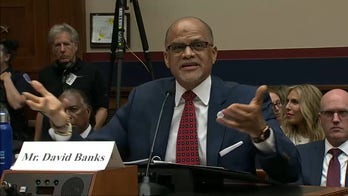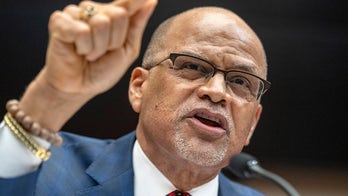Republican and Democratic congressional leaders are stepping up their war of words over a looming lame-duck session that is already being described as "chaos in Congress," as they gird for a marathon debate tackling everything from the debt ceiling to hundreds of billions of dollars in scheduled tax hikes.
At the center of the debate is the scheduled expiration of the Bush-era tax cuts.
This, combined with other changes like the expiration of the payroll tax cut backed by President Obama, will add up to a roughly $310 billion tax hike, according to a letter penned by Senate Republicans this past week.
"This would be, without any exaggeration, the largest tax increase in American history," they wrote.
The tax provisions, though, are just part of the mix. The country could bump up against the debt ceiling by early next year, leading House Speaker John Boehner this past week to once again demand spending cuts in exchange for a vote to increase that cap. In addition, spending cuts to the military and other areas triggered by last year's debt-ceiling deal are scheduled to kick in at the beginning of 2013.
With so much clumped on Congress' plate at the end of the year, leaders in both parties are calling on one another to begin dealing with the issues now -- as in, before the November election.
They're also moving to insulate themselves politically, by claiming to take the initiative on problems that months from now could end in stalemate.
House Speaker John Boehner and House Democratic Leader Nancy Pelosi traded barbs on the issue Sunday.
Pelosi, on ABC's "This Week," accused Boehner of going "over the edge." She said threatening to hold up the debt-ceiling increase "is not a responsible, mature, sensible place for us to go."
Boehner said he's "not going to apologize for leading." He called on Congress to deal with all three of the looming debates -- tax hikes, defense cuts and the debt ceiling -- before the election.
"We're looking at the largest tax increase in American history on January the 1st. We're looking at big cuts to our Department of Defense," he said. "And we're looking at an increase in the debt limit. Why do we want to wait to rush this through at the end of the year after the election?"
A letter from 41 GOP senators to Senate Democratic Leader Harry Reid this past week made a similar argument, warning of the "fiscal cliff" ahead that could imperil the economy.
"It is essential that Congress and the president address these coming tax increases this summer, rather than creating additional uncertainty for families and job creators by waiting until the last possible minute," they wrote. "The time to begin is now."
Rep. Paul Ryan, R-Wis., also said this week he's "totally up" for negotiating a temporary extension of current tax policies in order to avoid a year-end train wreck.
Pelosi put an offer of her own on the table Sunday.
Speaking on "This Week," she said Congress should carve out the middle-class tax cuts and put that to a vote in the near future. The move, she suggested, would signal that the tax cuts for high-income earners would not be extended when they're taken up later in the year since they would no longer be tied to the tax cuts for everybody else.
"I challenge the speaker right now to bring the middle-income tax cuts to the floor," Pelosi said.
Neither side, though, is putting forward a proposal with bipartisan backing, in a sign that all these debates could be pushed off until November and December.
Alan Simpson, the former Republican senator who co-chaired one of several deficit-reduction commissions that did not end up winning support from Congress or the president, earlier this week predicted the congressional session would be capped by a year-end, post-election brawl.
"I think between November 6 and December 20, it's going to be chaos in Congress," he said.





